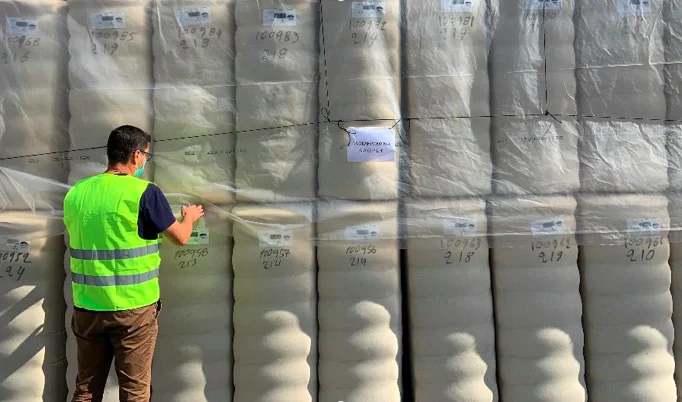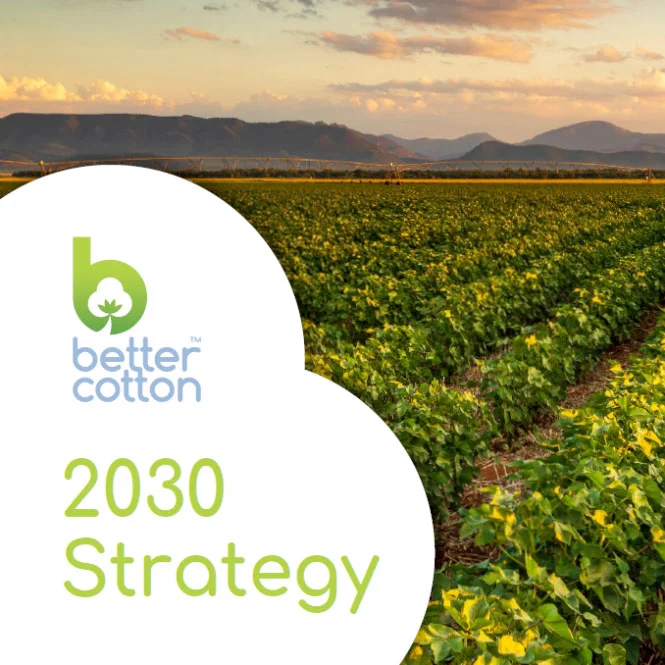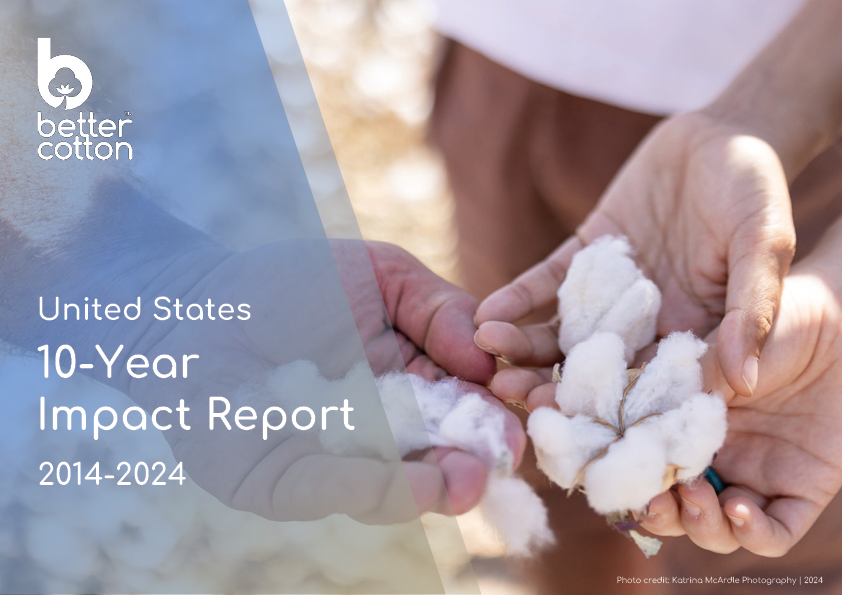- Who we are
- What we do
In just over 10 years we have become the world’s largest cotton sustainability programme. Our mission: to help cotton communities survive and thrive, while protecting and restoring the environment.
- Where we grow
Better Cotton is grown in 22 countries around the world and accounts for 22% of global cotton production. In the 2022-23 cotton season, 2.13 million licensed Better Cotton Farmers grew 5.47 million tonnes of Better Cotton.
- Our impact
- Membership
Today Better Cotton has more than 2,700 members, reflecting the breadth and diversity of the industry. Members of a global community that understands the mutual benefits of sustainable cotton farming. The moment you join, you become part of this too.
- Associate Membership
- Civil Society Membership
- Producer Organisation Membership
- Retailer and Brand Membership
- Supplier and Manufacturer Membership
- Find Members
- Member Monitoring
- Better Cotton Platform
- myBetterCotton
- Resources – Better Cotton Conference 2022
- Complaints
- Whistleblowing
- Safeguarding
- Get Involved in the Better Cotton Programme
- Thank you for contacting us
- Better Cotton’s Data Privacy Policy
- Log in
- Members’ Area
- Request for Proposals
- Better Cotton Cookie Policy
- Web Reference
- Measuring Cotton Consumption
- How to Implement the Chain of Custody Standard
- Resources – Better Cotton Conference 2023
- Certification Bodies Old
- Latest
- Sourcing
- Latest
The founding premise of Better Cotton is that a healthy sustainable future for cotton and the people that farm it is in the interests of everyone connected with it.
Let us help you find what you’re looking for
Results for {phrase} ({results_count} of {results_count_total})Displaying {results_count} results of {results_count_total}
The Better Cotton Initiative (BCI) is delighted to announce that the Greek AGRO-2 Integrated Management Standards have been successfully benchmarked as equivalent to the Better Cotton Standard System.
The recognition will promote more sustainable Greek cotton farming. Greece is the largest cotton-producing country in Europe, with more than 45,000 registered cotton farmers. Cotton is planted on approximately 270,000 hectares – 10% of the total agricultural land.
Farmers certified under the AGRO-2 standards who elect to participate in the BCI Programme will now be eligible to sell their cotton as Better Cotton from the 2020-21 cotton season. By the end of 2022, it is estimated that 5,000 farmers will be growing AGRO-2 licensed cotton (equivalent to Better Cotton), on 40,000 hectares, producing around 185,000 bales.
The AGRO-2 Integrated Management Standards were developed by the national Hellenic Agricultural Organisation, ELGO-DEMETER, a statutory body under the Ministry of Rural Development and Food. ELGO-DEMETER and the Inter-Branch Organization of Greek Cotton (DOV) – jointly ELGO-DOV – partnered to promote and implement the AGRO-2 standards for Greek cotton production.
”We are delighted to be working with ELGO-DOV as a strategic partner and welcome Greece as a new BCI equivalent standard. By bringing the two systems together, Greek cotton will be able to contribute to improved farmer livelihoods while increasing the profile of the country’s more sustainable cotton production.”
— Alan McClay, CEO, Better Cotton Initiative.
The benchmarking of the AGRO-2 standards to the Better Cotton Standard System is the culmination of several years of engagement and preparation. The process began in 2017 following interest expressed by Greek stakeholders.
BCI worked with IDH, the Sustainable Trade Initiative, to explore the possibility of a BCI programme in Greece. With initial funding from the Better Cotton Growth and Innovation Fund, a series of stakeholder consultations and assessments were conducted in line with BCI’s benchmarking and start-up process. After an independent comparison of the standards and a comprehensive gap analysis, a viable path towards benchmarking AGRO-2 with the Better Cotton Standard System (BCSS) was identified.
Following a thorough benchmarking review of the six components of the BCSS, modifications were made to the AGRO-2 standards to ensure alignment. Upon completion, Greece began the official BCI country start-up process, culminating in the signing of a Strategic Partnership Agreement between BCI and ELGO-DOV to recognise AGRO-2 certified cotton as equivalent to Better Cotton.

Photo: ELGO-DOV
About BCI
The Better Cotton Initiative (BCI) — a global not-for-profit organisation — is the largest cotton sustainability programme in the world. The Better Cotton Standard System is BCI’s holistic approach to sustainable cotton production which covers all three pillars of sustainability: environmental, social and economic.
In the 2018-19 cotton season, together with their partners, BCI provided training on more sustainable agricultural practices to 2.3 million farmers from 23 countries. BCI is truly a joint effort, encompassing organisations all the way from farms to fashion and textile brands to civil society organisations, driving the cotton sector towards sustainability. Thanks to the support of BCI partners and members, Better Cotton now accounts for 22% of global cotton production.
About ELGO-DOV and the AGRO 2 Integrated Farm Management Standards System
AGRO-2 are Greek production sustainability standards developed and operated by ELGO-DEMETER, the national Hellenic Agricultural Organization, a statutory body under the Ministry of Rural Development and Food. The Inter- Branch Organization of Greek Cotton (DOV) is collaborating with ELGO-DEMETER for the implementation of the AGRO-2 sustainability standards for cotton production.
AGRO-2 promotes integrated management of agricultural holdings to make make combined use of all available means to reduce inputs and achieve the best possible financial outcome for farmers. Farms and producer groups are enabled and encouraged to set goals and measure their progress towards better farming methods and practices.


